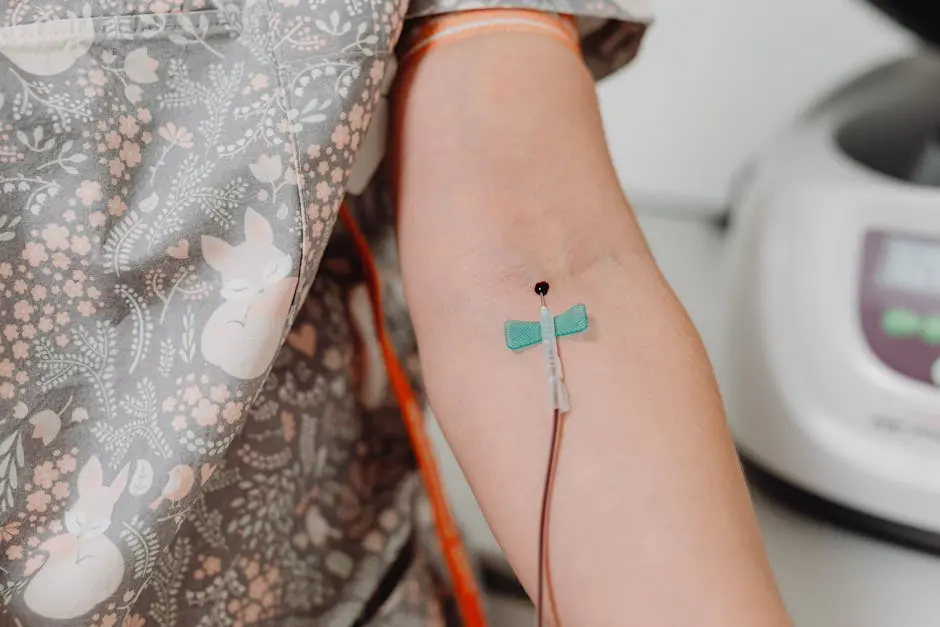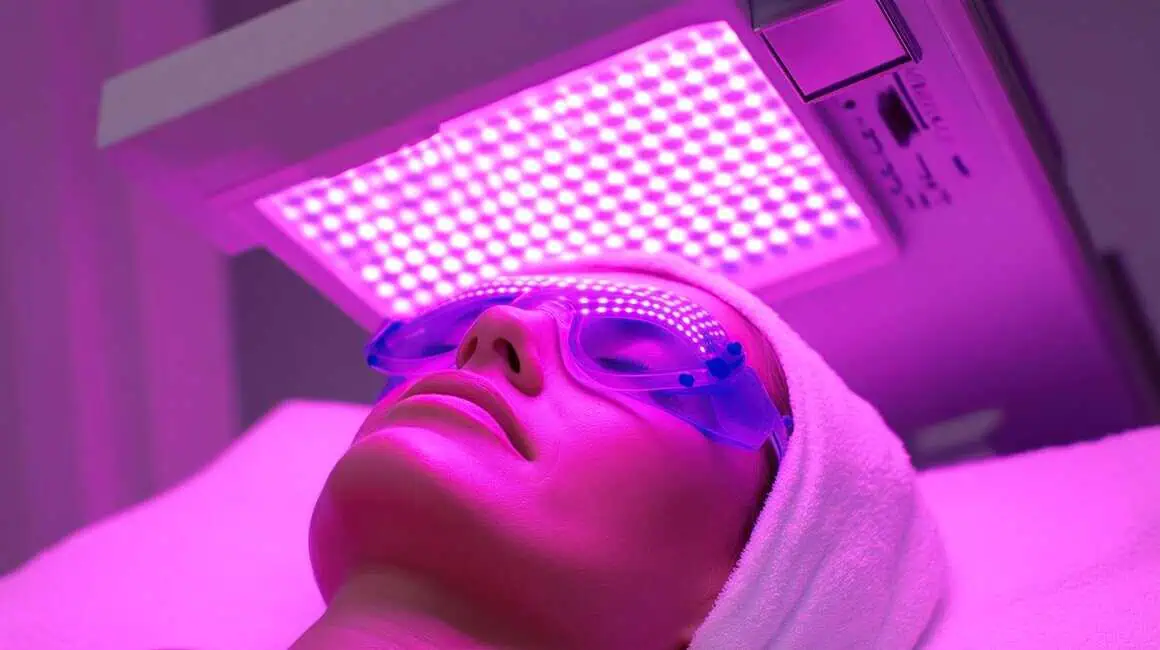IV nutrition therapy has gained popularity over the years, but with its rise in usage comes a cloud of myths and misconceptions. It’s important to separate the facts from the fiction to make well-informed decisions regarding your health. In this blog post, we’ll explore some common myths surrounding IV nutrition therapy and uncover the truths behind them.
1. IV Nutrition Therapy is Just for Athletes
One of the biggest misconceptions is that IV nutrition therapy is only beneficial for athletes. While it’s true that many athletes utilize IV therapy to enhance hydration and recovery, this treatment is also advantageous for a wide range of individuals. Anyone, from busy professionals to those recovering from illness, can benefit from the quick absorption of nutrients provided through IV drips. In fact, many people use IV nutrition therapy for reasons such as boosting energy levels, improving immunity, and even just feeling more refreshed and revitalized in their daily lives.
Moreover, everyday stresses and dietary limitations can impact our nutrient intake. Many people, whether athletes or not, find it challenging to consume enough vitamins and minerals. IV nutrition therapy can bridge that gap effectively, allowing for tailored nutrient combinations that align with one’s specific health goals. This means that it’s not just about recovery and performance; IV therapy is a holistic approach that anyone can leverage, regardless of their lifestyle.
2. It Can Replace a Healthy Diet
Another common myth is the belief that IV nutrition therapy can replace a healthy diet. This is not only misleading but also harmful. A balanced diet is crucial for long-term health, as it provides not only the essential vitamins and minerals but also the fiber and phytonutrients necessary for optimal bodily function. IV therapy should be viewed as a supplement, not a substitute. It can enhance the health benefits of a nutritious diet but cannot replicate the complex interactions that whole foods provide.
Incorporating IV nutrition can assist in filling the gaps of nutrient deficiencies caused by poor dietary choices or specific health conditions. Many people have busy lifestyles that can prevent them from preparing healthy meals regularly. In these cases, IV therapy can be particularly beneficial, acting as a temporary boost during periods of nutrient deficiency. However, the key takeaway is that a healthy lifestyle filled with varied, nutrient-rich foods remains indispensable for overall health and wellness.
3. IV Therapy is Only for the Sick
Some people believe that IV nutrition therapy is only for those who are sick or hospitalized. This view severely limits the understanding of the therapy. In reality, IV nutrition therapy serves various purposes beyond treatment for illness. It can be utilized for preventive health, helping individuals maintain optimal wellness even when they feel perfectly healthy. Preventive medicine is becoming increasingly important in today’s health-conscious society, making this misconception all the more irrelevant.
Consider individuals who frequently travel or those exposed to high stress. They can experience fatigue and nutrient depletion even when they are not visibly ill. IV therapy can offer these individuals a means of rehydration and nutrient replenishment, helping to fend off potential health issues before they arise. This proactive approach to health nurtures a stronger immune system and can enhance overall vitality. So it is vital to recognize that IV nutrition therapy is a valuable tool for everyone, not just the unwell.
4. All IV Drips are the Same
A prevalent myth is that all IV drips provide the same benefits, but this couldn’t be further from the truth. IV nutrition therapy is highly customizable, allowing healthcare professionals to tailor drips based on individual needs and goals. For instance, an athlete may require a different formulation compared to someone seeking to boost their immune system. The composition of vitamins, minerals, and hydration levels varies significantly from one drip to another.
It’s essential to understand that not all IV therapies are created equal. Some may contain high doses of specific nutrients that are beneficial for certain conditions, while others aim to hydrate and rejuvenate. That’s why it is crucial to consult with a knowledgeable healthcare provider who can recommend the most suitable IV therapy for your individual circumstances. Personalization is key in maximizing the benefits of IV nutrition therapy.
5. IV Nutrition Therapy is Dangerous
A common fear surrounding IV nutrition therapy is the belief that it is a dangerous practice. While, like any medical procedure, there are risks involved, when administered by qualified healthcare professionals, IV therapy is generally safe. Complications may arise if non-licensed individuals administer treatment, but ensuring that your provider is certified can mitigate these risks significantly. Always prioritize safety and verify credentials before proceeding with IV therapy.
Furthermore, understanding your own body’s reactions and needs is important. Allergic reactions to specific vitamins or minerals, while rare, can occur. Comprehensive medical evaluations can help identify contraindications. With careful selection and monitoring, most patients experience positive outcomes. Whenever considering a new treatment, it is crucial to do thorough research and make informed choices to ensure that you are entering a safe and beneficial process.
6. Anyone Can Administer IV Therapy
There is a harmful misconception that anyone can administer IV nutrition therapy. This notion is dangerous as it overlooks the complexities and potential hazards of the practice. IV therapy involves not only the drips but also the understanding of human anatomy, infection control, and patient monitoring. Certified medical professionals are trained to identify potential complications and respond accordingly, ensuring the patient’s safety and comfort during the process.
Due to the increasing popularity of IV therapy, it is crucial to be cautious and vigilant. Seek providers who have proper licenses and experience in administering IV nutrition therapy. This is especially vital because even a simple oversight can lead to complications. It’s always best practice to trust your health to professionals who have undergone extensive training and have the competencies required to provide safe treatment.
7. IV Therapy is Painful
A persistent myth among those unfamiliar with IV therapy is that it is an intensely painful process. In reality, most people report minimal discomfort, often describing it as a slight prick or pinch when the needle is inserted. Healthcare providers are trained to perform the procedure efficiently, often using techniques that minimize discomfort. With advancements in medical technology, the materials and methods used have improved significantly, making the overall experience much more comfortable.
Moreover, various options for pain management and relaxation techniques are utilized to further reduce anxiety and discomfort. If you tend to worry about pain, expressing your concerns to your provider can result in tailored strategies to help put your mind at ease. The perception of pain is subjective, and many individuals discover that their fear of pain is far worse than the actual experience of receiving IV nutrition therapy.
8. You’ll Feel Better Immediately
Many expect immediate results from IV nutrition therapy, leading to the myth that its effects can be felt instantly. While it’s true that many individuals experience a surge of vitality shortly after treatment, the long-term benefits can be surprisingly gradual and subtle. Factors such as existing health conditions, diet, and overall lifestyle impact how quickly one experiences positive changes. For some, it may take multiple sessions to truly feel a difference, while others notice improvements right away.
It can be beneficial to approach your expectations with a balanced mindset. Think of IV therapy as part of a comprehensive approach to health and wellness. While immediate improvements are possible, the true essence of wellness often unfolds over time as your body absorbs critical nutrients and begins to respond positively to the therapy. Patience and consistency can yield the best results.
9. IV Nutrition is Only for Hydration
There is a common belief that IV nutrition therapy solely addresses hydration needs. While hydration is a vital component, IV therapy offers far more than just fluid replenishment. The nutritional cocktails used in these treatments can include a myriad of vitamins, minerals, amino acids, and other beneficial compounds tailored to meet an individual’s unique health concerns. This allows for a wide range of health benefits, such as immune support, enhanced energy levels, and improved overall wellness.
This highlights the versatility of IV therapy. For instance, individuals experiencing chronic fatigue, stress, or even symptoms of aging can find tailored therapies designed to support their specific needs. Therefore, it’s important to understand that IV nutrition is a comprehensive approach that serves diverse purposes for our health beyond mere hydration.
10. There’s No Science Behind It
A prevalent myth is the suggestion that there’s no scientific basis for IV nutrition therapy. However, extensive clinical research has demonstrated that vitamin and mineral deficiencies can profoundly affect health. Studies have shown that IV therapy can be beneficial for various health conditions and preventive measures, including chronic fatigue, dehydration, and nutrient deficiencies. As more people become interested in harnessing the benefits of IV nutrition therapy, ongoing research continues to support its positive effects.
Moreover, discussions surrounding the therapeutic benefits have shifted in recent years. As science and medicine evolve, so does the acceptance of treatments once regarded as fringe. It’s critical to stay informed about the current research landscape surrounding IV therapy, as this will empower consumers to make educated choices about their health. Relying on credible, scientific information can help demystify the therapy and validate its uses for those seeking holistic wellness.
11. IV Therapy is a New Trend
There’s a misconception that IV therapy is a fleeting trend rather than a well-established medical practice. In fact, IV nutrition therapy has been around for many decades and continues to gain recognition within medical and wellness communities alike. Historically, it was primarily utilized in hospitals, but its benefits have expanded into outpatient settings and wellness clinics. This shift has made IV nutrition therapy more accessible to the general public, allowing people to explore its potential benefits outside of acute medical situations.
As this treatment gains popularity, more providers are becoming knowledgeable and offering personalized services. This does not mean that it’s simply a fad; rather, it’s adapted and evolved to meet the changing demands of the population. Understanding its historical context helps reinforce that IV nutrition therapy has remained a significant aspect of modern healthcare and wellness for good reason— its ability to deliver nutrients rapidly and effectively is more relevant today than ever before.
12. Anyone Can Benefit from IV Therapy
While IV nutrition therapy can offer impressive benefits, it’s crucial to acknowledge that it won’t perfectly suit everyone. Though it has great potential for a range of individuals, not everyone needs it or will respond favorably. Factors like personal health history, existing medical conditions, and specific health goals play a vital role in determining whether someone should utilize IV therapy. This doesn’t negate its benefits; it emphasizes the importance of personalized care and the need for individuals to access medical expertise.
Before beginning any treatment, including IV nutrition therapy, it’s advisable to undergo a thorough medical consultation. This helps to clarify expectations and identify the best interventions tailored to one’s unique needs. Understand that while many find relief and revitalization through IV therapy, it remains an adjunct to other health practices. Listening to your body and consulting your healthcare provider can place you on the right path for achieving optimal health.





